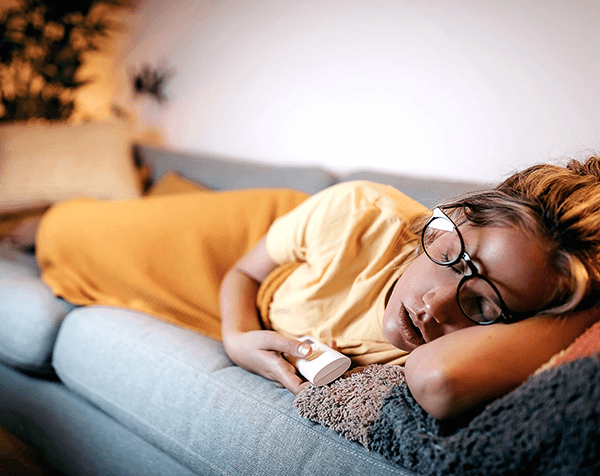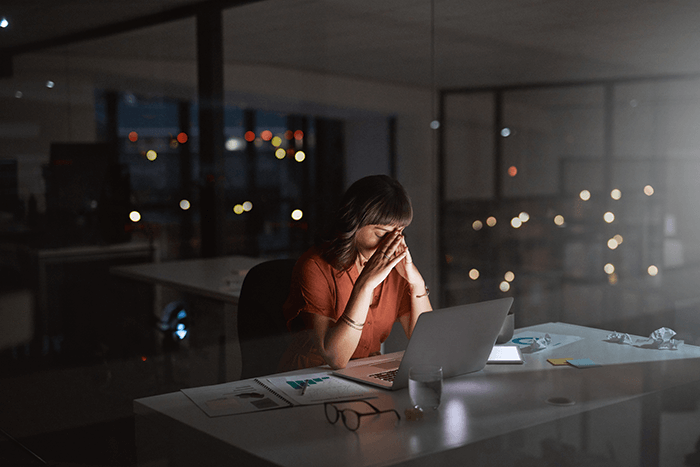When it comes to sleep, there are a plethora of options out there to help you get quality sleep. In this article, we'll explore different types of sleep aids, but we'll also discuss the importance of taking a holistic approach to our sleep health and identifying the root cause of our sleep problems.
Natural Sleep Aid options
A natural sleep aid refers to any substance or activity that can promote or improve sleep without relying on medications. Some examples of natural sleep aids include:
- Chamomile tea1: Drinking chamomile tea before bedtime may promote relaxation and improve your sleep quality.
- Lavender essential oil1: Trying aromatherapy with some lavender essential oil may have a calming effect and promote relaxation before you go to sleep.
- Valerian root1 : Valerian root is a herb that has been used for centuries as a natural remedy for insomnia.
- Magnesium1 : Magnesium is a mineral easily bought at supermarkets or pharmacies that can promote physical relaxation and improve sleep quality.
- Passionflower1 : Passionflower is an herb that has been used as a natural sleep aid due to its calming effect on the body.
- Lemon balm1 : Lemon balm is a herb used to reduce anxiety and promote relaxation.
- Ashwagandha1 : Ashwagandha is a herb that can reduce stress and anxiety, which in turn may improve your sleep quality.
Natural sleep aids like those above can be effective for some, but their effectiveness varies among different people. Therefore, we recommend you consult with your healthcare provider before trying them.
Medical Sleep Aid
Over the counter or prescription sleep medications can also be used to treat insomnia. Medical sleep aids work by affecting chemicals in your brain that help you feel sleepy. Some medical sleep aids work by increasing the activity of a chemical called ‘GABA’, which helps to relax the brain ready for sleep. Other medical sleep aids work by binding to certain receptors in the brain that help regulate the sleep-wake cycle.
Medical sleep aids can have side effects and they can be habit-forming (leading to dependence) – so again it's important to talk to a doctor and understand all your treatment options before taking them.
Other insomnia treatments
CBT-I
The best way to treat insomnia is to address its underlying causes. A highly effective treatment option is undertaking cognitive behavioural therapy for insomnia (CBT-I). CBT-I is often recommended as the first line of treatment. Cognitive-behavioural therapy for insomnia (CBT-I) is a type of therapy that takes a holistic approach to treating insomnia. CBT-I focuses on changing negative thoughts and behaviours related to sleep and developing healthy sleep habits. It helps individuals identify the underlying causes of insomnia and provides tools to address them.
We have a digital CBT-I program called somnio. somnio can help you understand your sleeping problems; handle racing thoughts; learn better relaxation techniques for you to fall asleep faster; and optimise your sleep times. somnio was clinically designed and is worked through over a 10-week period in the comfort of your own home.
Relaxation techniques
Incorporating relaxation techniques into your routine before bedtime can also help. Activities like deep breathing, meditation, and yoga can help reduce stress and promote relaxation – leading to improved sleep.
Regular exercise
Incorporating exercise into your daily routine can improve overall sleep quality and help reduce stress and anxiety, which can interfere with sleep. Aim for 30 minutes of exercise on most days and try not to exercise too close to your bedtime.
While there are many ways to improve your sleep through sleep aids, it is so important to look at our health from a holistic perspective and understand what's causing our sleep problems. By addressing the underlying causes and developing healthy sleep habits, we can sustainably improve sleep quality and know we’re not merely ‘band-aiding’ the real problem. The best way to treat insomnia is to address the root causes and develop good sleep habits over time.
.webp?width=1158&height=143&name=Combined%20logo%20-%20Ecom%20Main%20300x200%20(1).webp)




